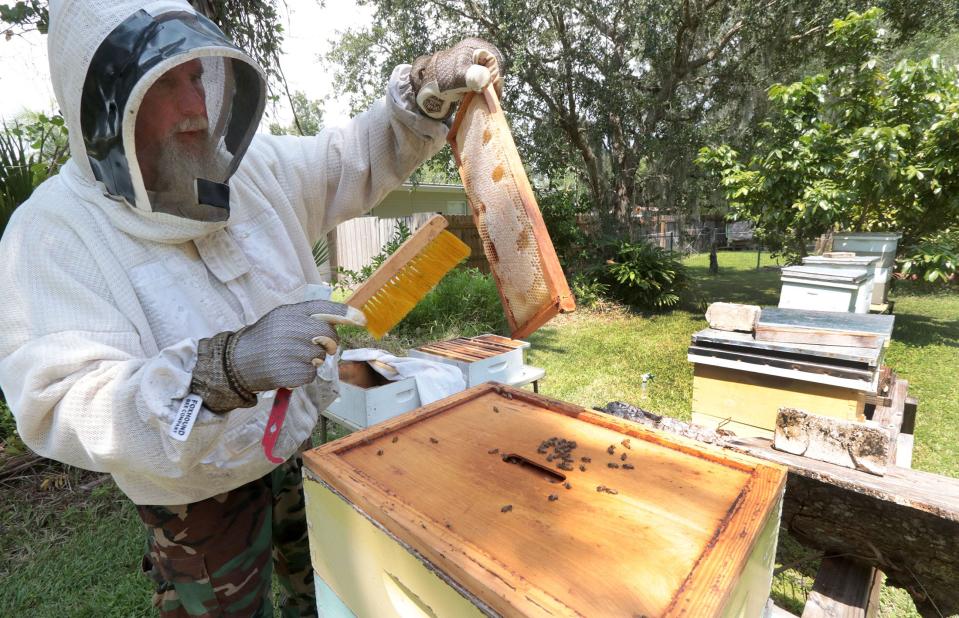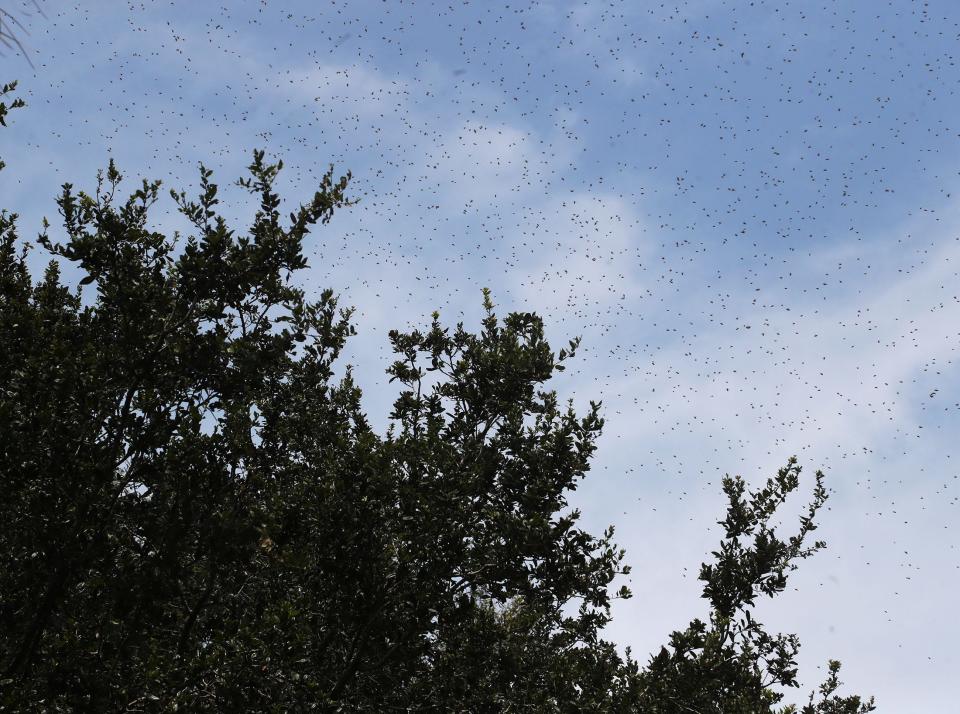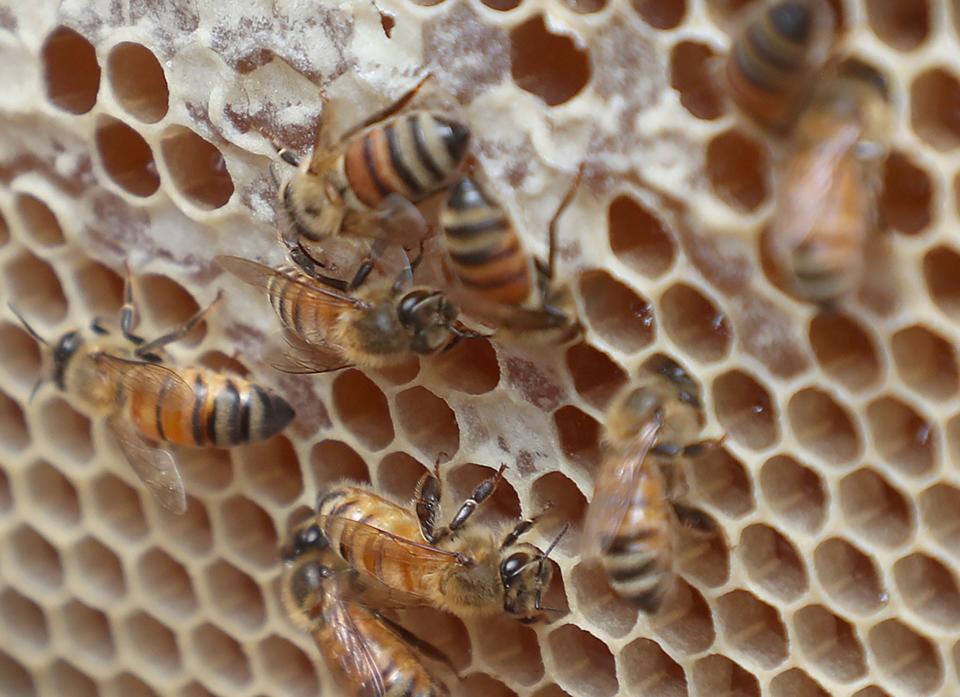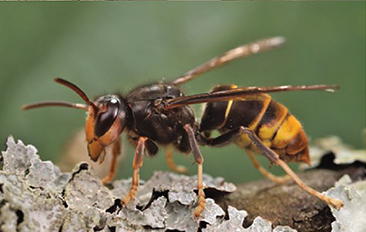Florida beekeepers on alert for predatory yellow-legged hornet after sighting in Georgia
Local beekeepers last week expressed concern about the recent sighting of a predatory hornet in Georgia.
The University of Florida Institute of Food and Agricultural Services in a news release Tuesday said residents should watch for and report any sightings of the yellow-legged hornet after the invasive species was found in Savannah, Georgia, last week.
New Smyrna Beach resident and beekeeper Marlin Athearn likened the yellow-legged hornet, also known as Vespa velutina, to "a small flying tank."
"The bees can't deal with it; it's got armor," Athearn said by phone Wednesday.

Hornets are 'serious business'
The yellow-legged hornet, also known as the Asian hornet, preys on honey bees and their larvae and has already made a disastrous mark on bee populations in Europe, said Meredith Bauer, spokesperson for UF/IFAS.
Athearn said a scout hornet will visit a hive and come back with reinforcements and essentially wipe out the hive.
"Imagine you're walking down the street and some guy 20 feet tall with a meat cleaver for a mouth decides to go after you," Athearn said. "These hornets are serious business."
He said unlike the Vespa mandarinia, better known as the "murder hornet" or Northern giant hornet, which has been an issue in the Northwest, the yellow-legged hornet can handle the South's heat.
UF/IFAS Master Beekeeper Tim Blodgett said the hornets are devastating to the bee pollinator industry.
Think you've seen a murder hornet?: You probably saw one of these 5 look-alikes instead
Honey bees versus hornets
The honey bee, also known as Apis mellifera, does not have the means to take on a predatory hornet, Athearn said. It can be a different story with the Asian honey bee, also known as Apis cerana.
Athearn said a large group of Asian honey bees will hold a hornet down and vibrate their flight muscles to create heat, essentially cooking the hornet.

Amy Vu, state specialized program extension agent for the UF/IFAS Honey Bee Research and Extension Laboratory, said the honey bees in North America have no natural defense against the yellow-legged hornet.
Protecting honey bees from hornets
Athearn said he recently returned from a trip to Malta, an island country in southern Europe, where he met with an apiarist who had encountered the hornets.
"The problem is they tend to live in high places, up in concrete structures and are hard to get to," Athearn said.

He said companies and beekeepers are working on ways to trap the hornets.

Athearn said even if the hornets were unable to get inside a beehive, "they'll just park on the doorstep," and as the older bees are killed off, there's no foraging and the hive is ultimately wiped out.
"If they're in Georgia, chances are they're somewhere in Florida, we just haven't run into them yet," Athearn said. "One of the downsides of having so much rural land in America is these things can get in and replicate, and then by the time you realize they're there, it's like the Brazilian pepper, it's too late."
What to do if you encounter a yellow-legged hornet
Bauer said if someone encounters a yellow-legged hornet and can safely kill it, they should do so and collect it for identification.
To report a suspected yellow-legged hornet, call the Florida Department of Agriculture and Consumer Services at 888-397-1517 or email dpihelpline@fdacs.gov.
This article originally appeared on The Daytona Beach News-Journal: Florida beekeepers on alert for predatory yellow-legged hornet

